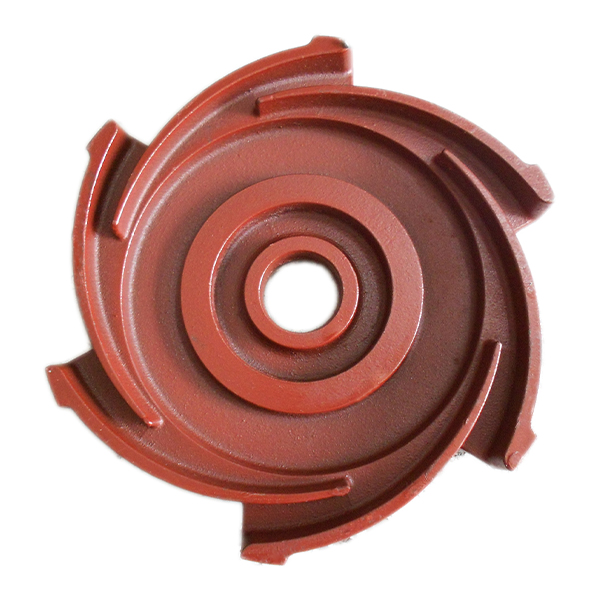Mobile:+86-311-808-126-83
Email:info@ydcastings.com
English
Aluminium Die Casting Manufacturer for High-Quality Precision Parts and Components
Aluminium Die Casting Factory A Comprehensive Overview
Aluminium die casting has become an essential process in the manufacturing industry, offering a combination of durability, lightweight properties, and tolerance in design. An aluminium die casting factory plays a pivotal role in the production of various components used in automotive, aerospace, consumer goods, and numerous other sectors. This article explores the operations, benefits, and significance of aluminium die casting factories.
Understanding Aluminium Die Casting
Aluminium die casting is a manufacturing process where molten aluminium is forced into a mold cavity under high pressure. This method allows for the production of intricate shapes and high-precision parts that are often lightweight yet strong. The process can accommodate a variety of component sizes and shapes, making it a versatile choice for manufacturers.
The Process of Die Casting
The die casting process involves several key steps
1. Mold Design The first step involves designing a mold that meets the specifications of the desired parts. Molds are typically made from steel and can be quite expensive, but they are crucial for ensuring the accuracy and repeatability of parts.
2. Melting Aluminium Once the mold preparation is complete, aluminium is melted in a furnace at temperatures over 700°C (approximately 1,300°F). The molten aluminium must reach a uniform consistency before being transferred to the die casting machine.
3. Injection The molten aluminium is injected into the preheated mold at high pressure. The pressure ensures that the metal fills every corner of the mold, capturing all the intricacies of the design.
4. Cooling and Solidification After injection, the molten aluminium cools and solidifies rapidly within the mold. The cooling time can vary based on the shape and thickness of the part being produced.
5. Ejection Once the aluminium has solidified, the mold opens, and the finished part is ejected. This process allows for high production rates and efficiency.
6. Post-Processing After ejection, the parts may undergo additional processes such as trimming, machining, or surface finishing to meet the required specifications.
aluminium die casting factory

Benefits of Aluminium Die Casting
Aluminium die casting provides several advantages
- Strength and Durability Aluminium offers remarkable strength-to-weight ratios, making it an ideal choice for parts exposed to stress without adding excessive weight.
- Complex Designs The die casting process allows manufacturers to create complex geometries that would be challenging with other manufacturing methods.
- High Production Rates Die casting is suitable for mass production, enabling factories to produce thousands of parts in a short timeframe.
- Minimal Waste The process is efficient, producing little waste material, which is beneficial for both cost management and environmental sustainability.
- Excellent Surface Finish Die cast components often require minimal finishing, resulting in a high-quality surface finish with reduced post-processing costs.
The Importance of Aluminium Die Casting Factories
Aluminium die casting factories are instrumental in meeting the growing demands of various industries. With an emphasis on innovation and quality, these facilities contribute to advancements in technology and manufacturing techniques. They support businesses in sectors such as automotive manufacturing, where lightweight components can lead to improved fuel efficiency and performance. In the aerospace industry, the strength and lightweight nature of aluminium components contribute to safer and more efficient aircraft.
Moreover, the increasing focus on sustainability has made aluminium die casting factories vital players in the circular economy. Many factories are now implementing recycling practices, reclaiming scrap aluminium and reducing their environmental footprint.
Conclusion
In summary, aluminium die casting factories serve as the backbone of modern manufacturing processes, offering efficient, cost-effective, and high-quality solutions for various applications. From automotive parts to consumer electronics, the versatility and advantages of aluminium die casting make it an indispensable method in the production landscape. As technology advances and the demand for lightweight, durable materials continues to rise, the importance of aluminium die casting factories will only grow, driving innovation and sustainability in manufacturing.
-
Materials Used in Manufacturing Cap End Pipe FittingsNewsNov.24,2025
-
Material Properties of CF8M CastingNewsNov.24,2025
-
How to Inspect Pump Cap Ends for DamageNewsNov.21,2025
-
Backward Curved Impeller – Efficient Airflow Solutions for Industry | YD CastingsNewsNov.21,2025
-
Automobile Water Pump - Efficient, Quiet, Durable & ElectricNewsNov.21,2025
-
Impeller for Pumps – High-Efficiency, Durable, OEM-ReadyNewsNov.21,2025











